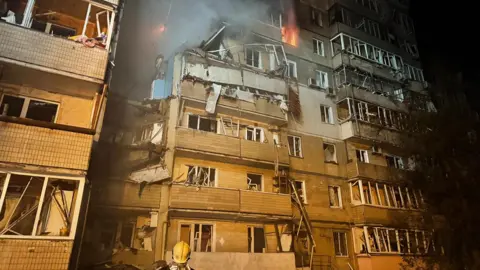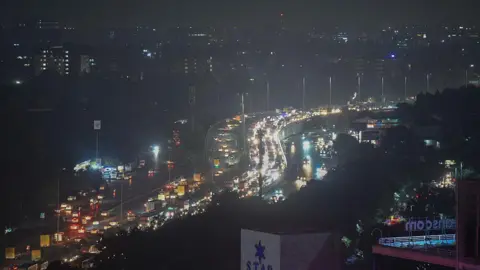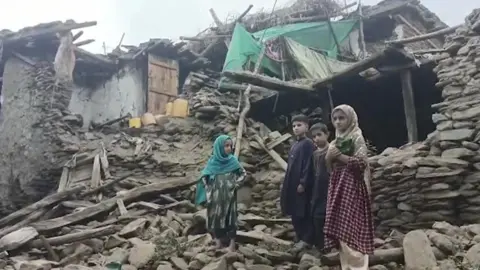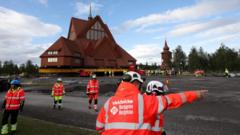The vastness of the building site was at first overwhelming for the young Ethiopian mechanical engineer.
Hundreds were already digging the foundations in tough conditions for what is now Africa's largest hydro-electric dam, straddling the Blue Nile.
Moges Yeshiwas was 27 when he arrived in that remote corner of western Ethiopia in 2012, eager to gain valuable experience in his profession. The completion of the project is set to change his nation, but it also changed his life.
On Tuesday, Prime Minister Abiy Ahmed formally launched the Grand Ethiopian Renaissance Dam (GERD), which will help electrify the country as well as provide power to the region.
The dam wall stretches 1.78km (1.1 miles) across a valley and stands 145m (475 feet) high – it is constructed with 11 million cubic metres of concrete. It has created a huge reservoir, called Lake Nigat, which means dawn in the Amharic language.
The dam's construction on a Nile tributary, which provides most of that great river's water, was controversial with downstream countries. Diplomatic tensions with Egypt cranked up and there was even talk of conflict.
But for Ethiopia, the GERD has become a symbol of national pride and, in Abiy's view, it has placed his country firmly on the world stage.
On a personal level, Mr. Moges, now 40, was also very proud to be part of it. Watching the dam's progress day by day was deeply satisfying. I came seeking employment, but somewhere along the way, it stopped feeling like just a job. I grew attached to the project, worrying about its future as if it were my own.
There were challenges. Lengthy separation from family was difficult, he told the BBC. Mr. Moges could only go home – a 400km-drive away in Bahir Dar – twice a year.
The dam site's remoteness and the at times extreme heat – with temperatures sometimes hitting 45C - also presented issues. Plus, the working hours were long.
His job was to make sure the building work was structurally sound and construction standards were maintained.
The GERD project was a rare unifying force as the Horn of Africa country has been rocked by political violence and ethnic strife in the past decade. While some, like the engineer, worked directly on the dam, millions of other Ethiopians were, literally, invested in it.
People from all walks of life contributed to building the dam through donations and the purchase of government-issued bonds.
Despite claims by US President Donald Trump that Washington financially supported the dam's construction, Addis Ababa maintains it was fully funded domestically.
Several fundraising campaigns were held that saw members of the public contribute multiple times. Clinical nurse Kiros Asfaw was one of those. Despite being from the Tigray region, which was blighted by a two-year civil war, he contributed when he could to the dam's construction ever since the plans were first announced in 2011.
At full capacity it should generate 5,100MW of power - more than double what the country produces without the dam and enough to supply tens of millions more homes in the country. That is however dependent on the infrastructure being in place to carry the power to different parts of the country.
Water and Energy Minister Habtamu Ifeta told the BBC that nearly half of the country's 135 million people do not have access to electricity.
That is what we want to reduce now in the coming five years. Our intention is by 2030 at least 90% of our nation should get access to electricity, he said.
For Ms. Getenesh, who, when it is dark, sometimes relies on the weak light from her husband's mobile phone, just being able to see at night is what she dreams of. I want to see light in my house. All the other electric goods don't matter now. Just light in the evening is all I want, she tells the BBC.
But for the engineer, Mr. Moges, the power generated on the Blue Nile will eventually make a difference. I hate the fact that I couldn't be there for him as much as I needed to, he says. But I know his future is going to be bright because of something I have contributed, and I am so proud to tell him that when he grows up.



















